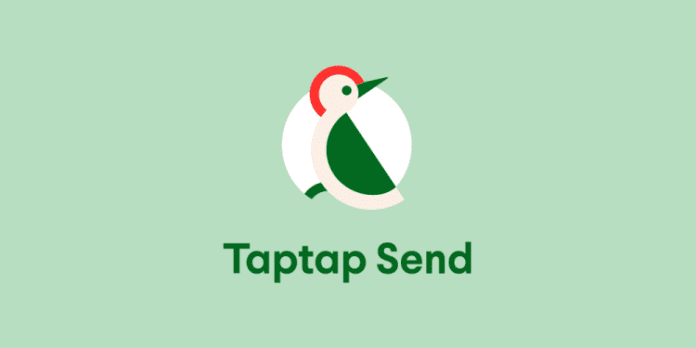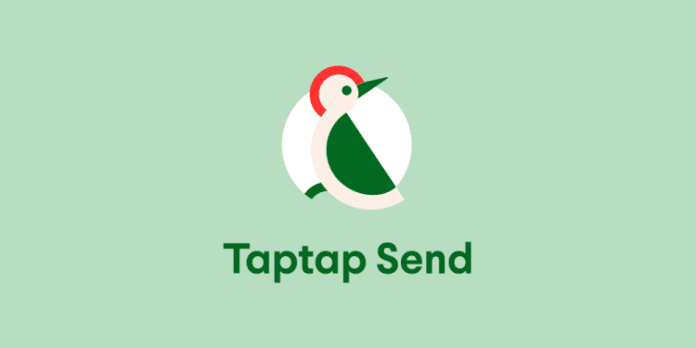
Money transfer operator Taptap Send has resumed remittance services to Ghana following what the company describes as fruitful engagement with the Bank of Ghana, with the suspension lifted nine days ahead of schedule. The restoration allows customers in the UK, Europe, Canada, the United States, and the UAE to once again send money to recipients in Ghana.
The Bank of Ghana imposed a one month suspension on Taptap Send and four other money transfer operators effective September 18, 2025, citing breaches of the Updated Guidelines for Inward Remittance Services by Payment Service Providers issued in 2023. The suspension was scheduled to last until October 18, but was lifted on Thursday, October 9, following what both parties characterized as constructive dialogue.
The other suspended operators included Top Connect, Remit Choice, Send App, and Afriex. In a separate action, the central bank also suspended remittance partnerships of three payment service providers: Flutterwave, Cellulant Ghana, and Halges Financial Technologies. The suspensions represented one of the most significant regulatory enforcement actions targeting remittance services in recent Ghanaian financial sector history.
Bank of Ghana officials did not specify the exact nature of the breaches at the time of the suspension announcement. However, the action came as the central bank intensified oversight of foreign exchange transactions and remittance flows, areas of heightened regulatory sensitivity given their importance to Ghana’s economy and monetary stability.
Remittances represent a critical source of foreign exchange for Ghana. According to World Bank data, personal remittances received by Ghana totaled approximately $4.7 billion in 2023, representing roughly 5.5% of the country’s GDP. Disruptions to remittance channels can affect thousands of families who depend on transfers from relatives abroad to meet basic needs.
Taptap Send, which positions itself as a leading money transfer operator to Africa, expressed appreciation to customers for patience during the suspension period. “We love our customers dearly and cannot thank them enough for sticking with us and standing by us through this period,” the company said in a statement announcing the resumption of services.
The company emphasized its commitment to regulatory compliance, stating it “remains safe, secure, and fully compliant and has taken the opportunity to double down on its commitment to upholding the highest standards of compliance and excellence in service provision to Ghana and beyond.”
The suspension and subsequent early lifting illustrate the delicate balance regulators must strike between enforcing compliance standards and maintaining the flow of remittances that many households rely upon. Extended disruptions to remittance services can create hardship for recipients while potentially driving transfers to informal channels that operate outside regulatory oversight.
For money transfer operators, regulatory suspensions carry significant business consequences. During the suspension period, Taptap Send lost market share to competitors who maintained operational status. The company’s statement acknowledging customer loyalty suggests awareness that suspended services create opportunities for rivals to capture users who cannot afford to wait for service restoration.
The Bank of Ghana’s willingness to lift the suspension ahead of schedule indicates that affected operators addressed the regulatory concerns to the central bank’s satisfaction. Whether this involved procedural changes, documentation improvements, or other compliance measures remains unclear, as neither party has publicly detailed the specific remedial actions taken.
The incident highlights ongoing challenges in regulating rapidly evolving digital remittance services. Traditional money transfer operators operated through established banking channels with well understood regulatory frameworks. Digital platforms like Taptap Send often partner with multiple payment service providers and use technology that can outpace regulatory guidelines designed for earlier models of remittance services.
Ghana’s 2023 Updated Guidelines for Inward Remittance Services represent the central bank’s attempt to adapt regulation to digital realities. However, the September suspensions suggest implementation challenges remain, either in how operators interpret requirements or how they execute compliance in practice.
The resumption of services ends what Taptap Send described as “a really difficult time of inconvenience” for its customer base. The company closed its statement with “We dey for you,” using Pidgin English that resonates with West African customers and signals the company’s intention to maintain its market position in Ghana.
Whether other suspended operators have similarly resolved their regulatory issues remains unclear. The Bank of Ghana has not issued public statements about the status of Top Connect, Remit Choice, Send App, Afriex, or the three suspended payment service providers.
For now, Taptap Send users can resume transfers with the company asserting it has “missed” customers and eagerly anticipates renewed activity on its platform. The episode serves as a reminder that digital financial services, regardless of their convenience and competitive pricing, operate within regulatory frameworks that authorities will enforce when they identify compliance gaps.
The early suspension lifting may signal the Bank of Ghana’s pragmatic approach to regulation, willing to restore services once operators demonstrate compliance rather than rigidly enforcing predetermined timeframes. This approach balances regulatory authority with practical recognition that remittance suspensions affect vulnerable populations who depend on transfers for essential expenses.
